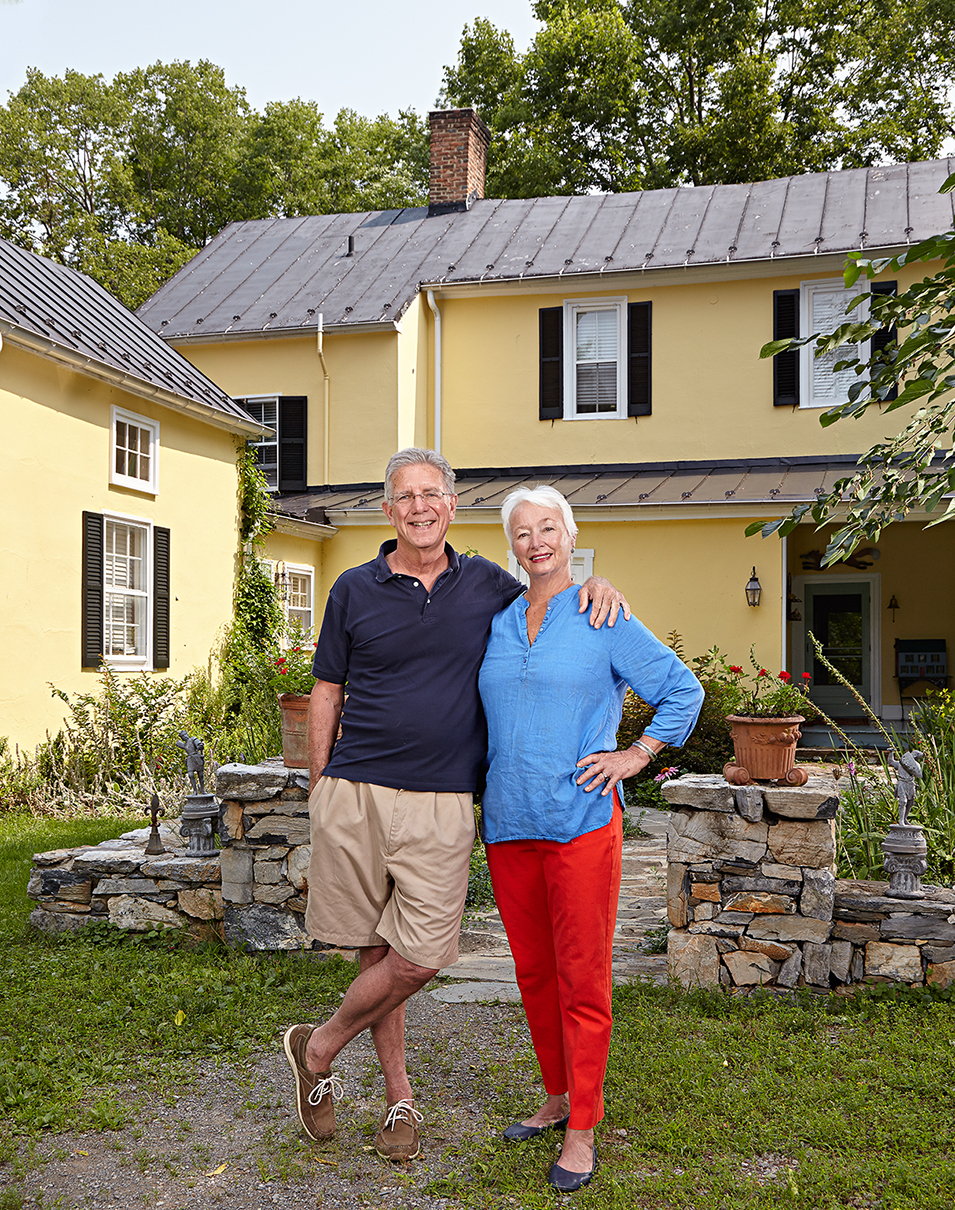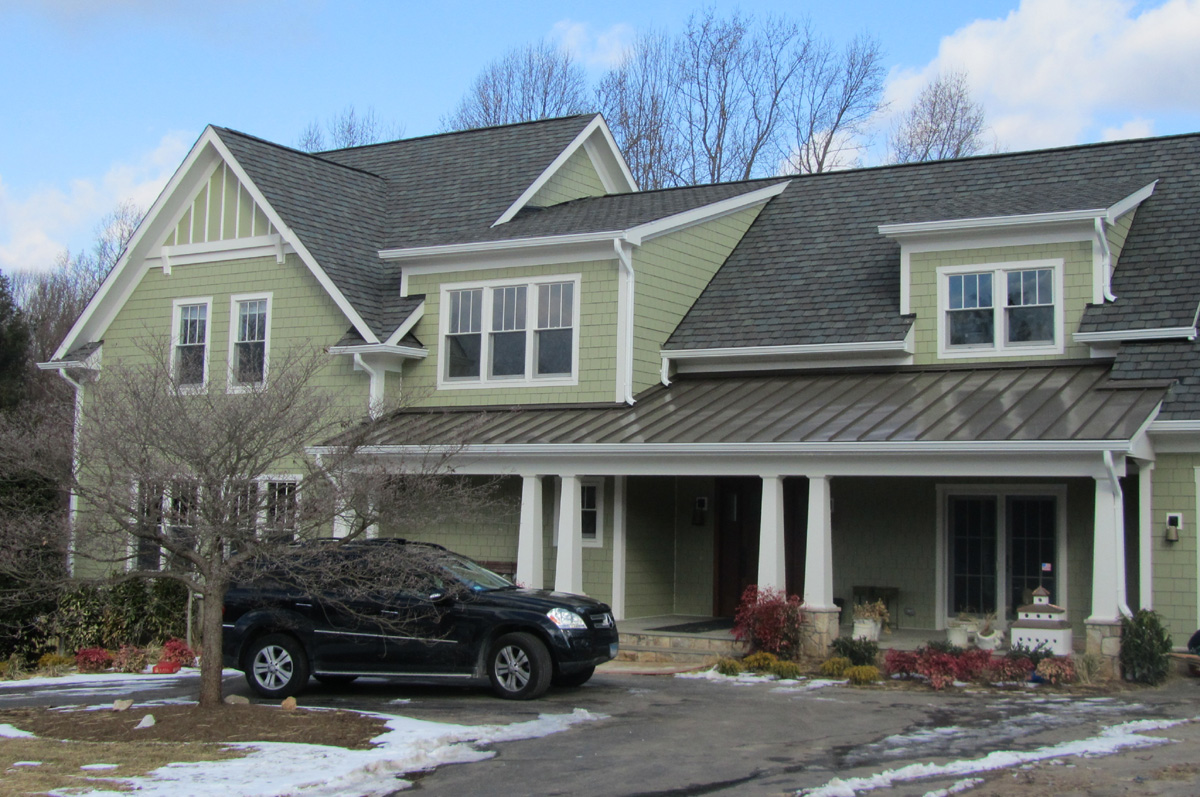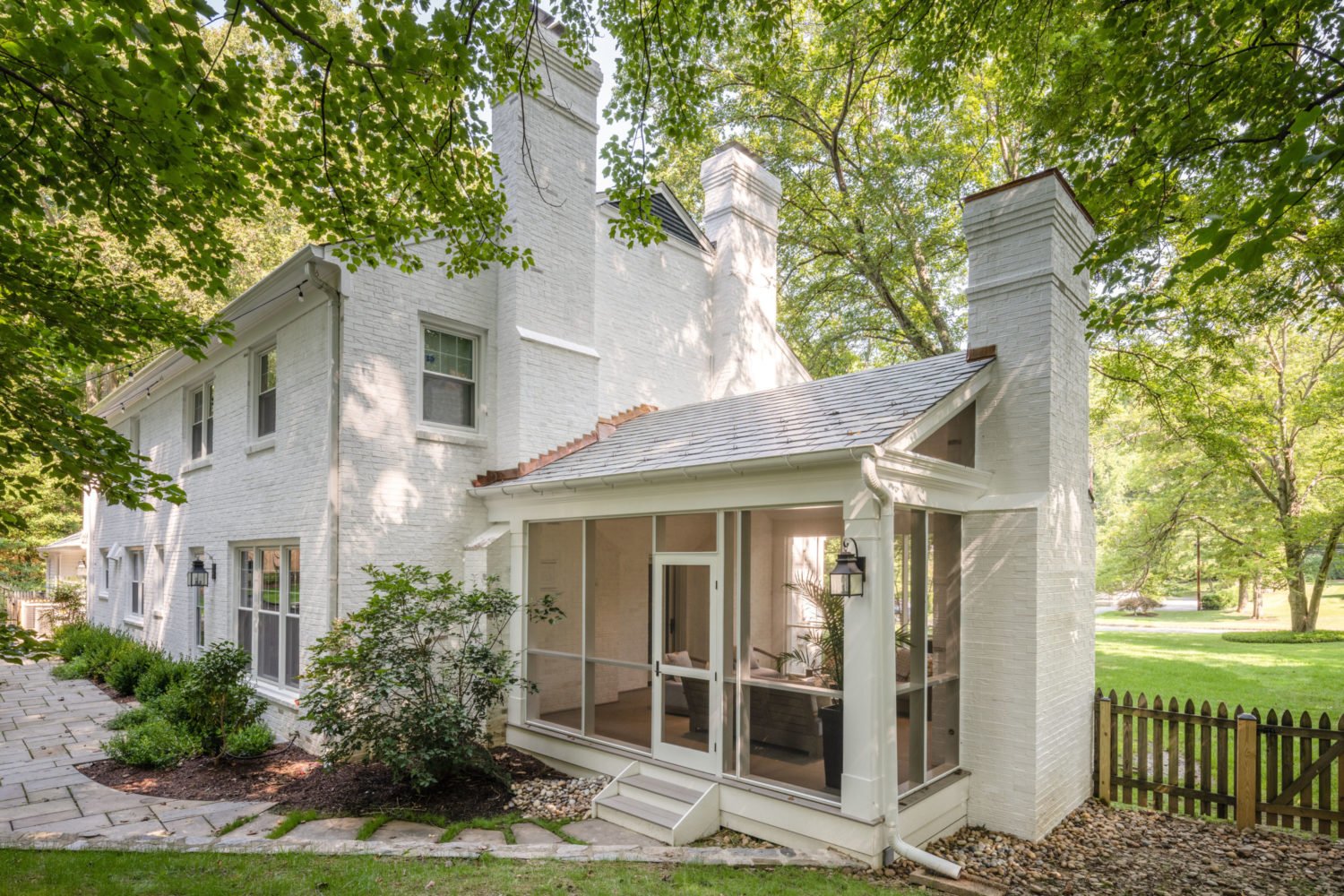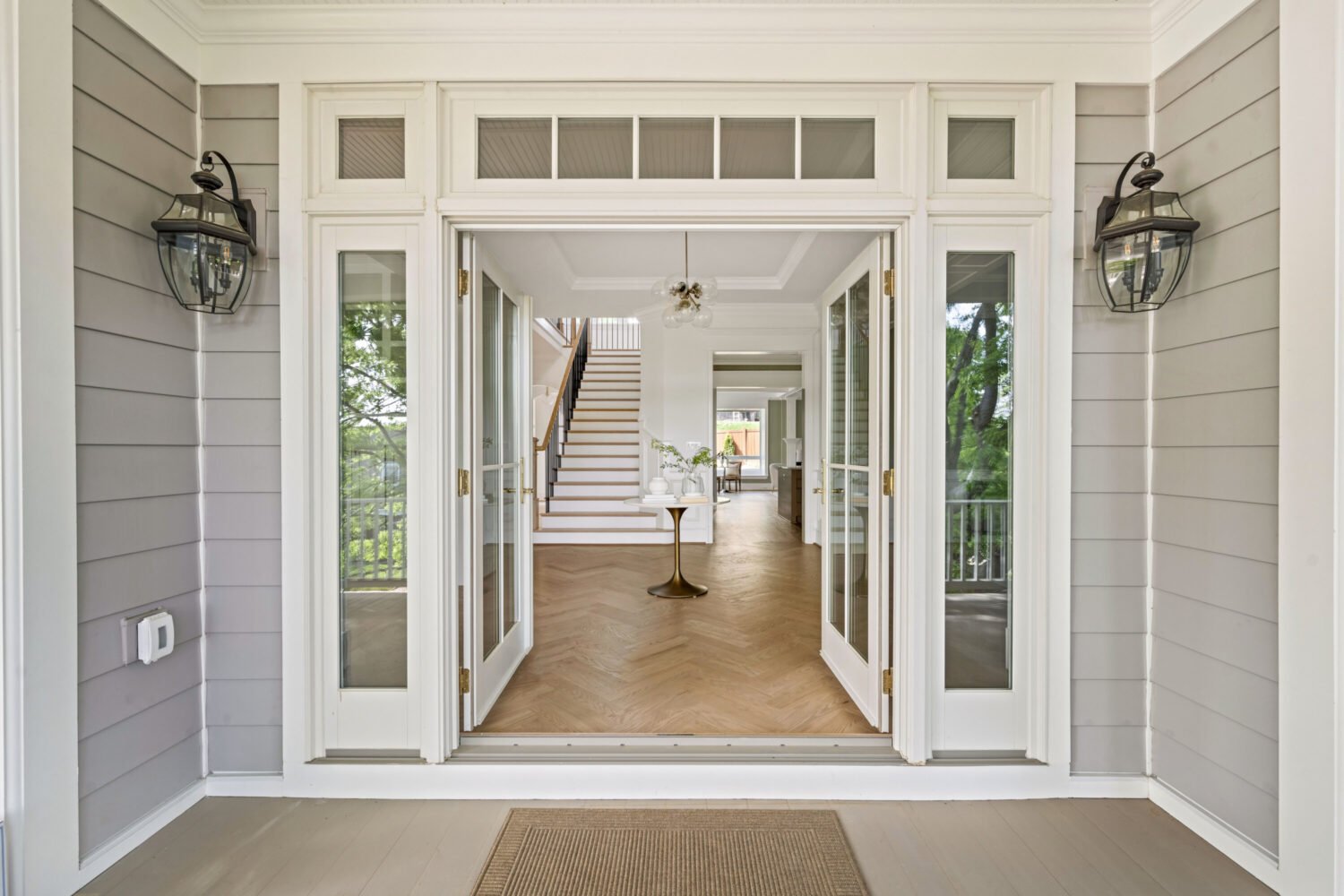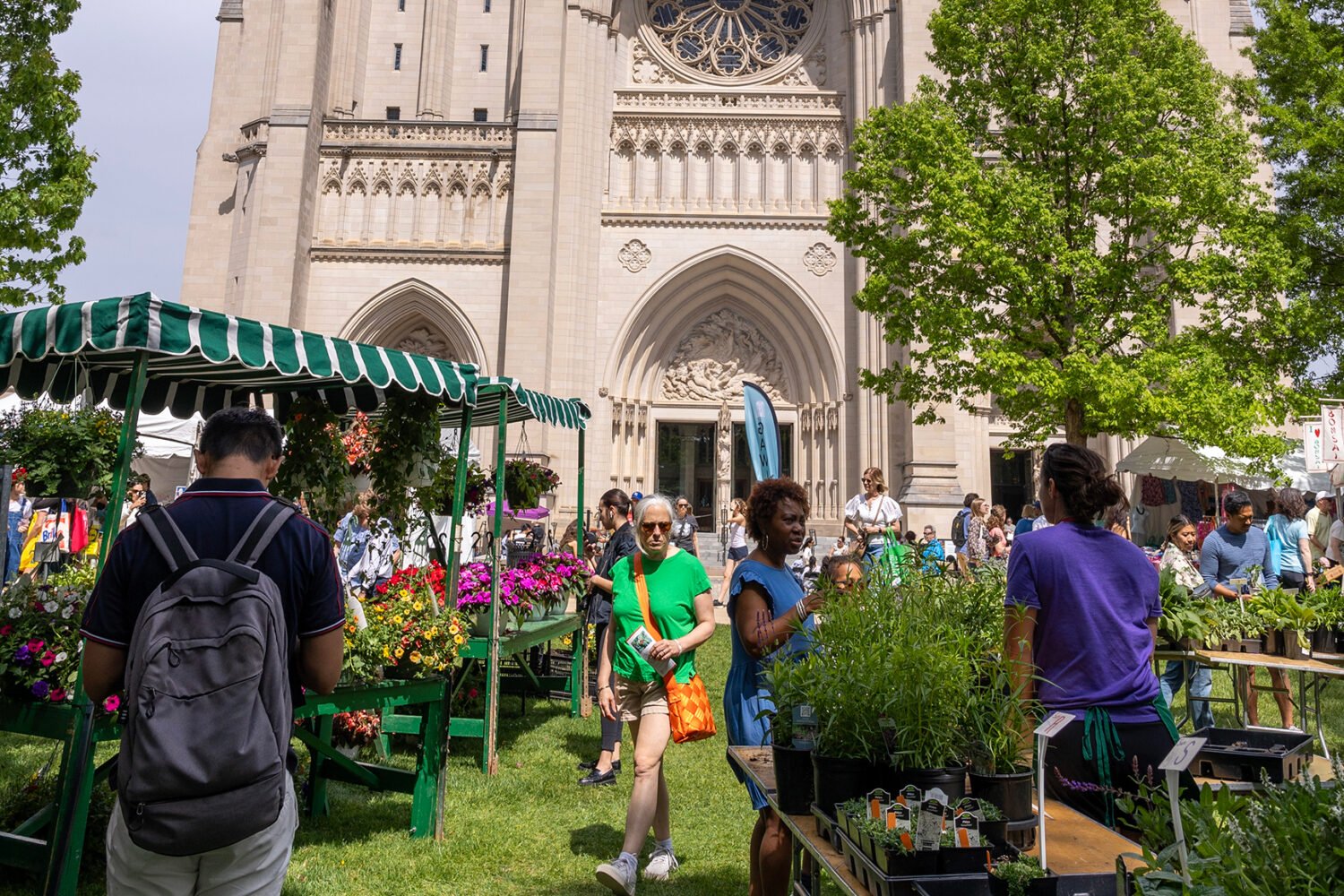So, you have a yearning for small-town life? Maybe it’s the traffic that has finally gotten to you, or crime, noise, McMansions, or the relentless pace of urban existence. They all helped drive my wife and me from Inside the Beltway a decade ago. Beware, though: While small towns have much to offer, they’re not fail-safe escapes from the inevitable challenges of communal living.
Take Millwood, our little village of about 100 souls just on the other side of the Blue Ridge Mountains and Shenandoah River, at the far end of Virginia horse country. For my wife and me, it was pretty much love at first sight after months of searching: a 1790 house on a bluff overlooking a still-working mill, a millrace that sings us to sleep at night, and even (inexplicably) broadband service.
Second impressions held up, too. Lifelong residents were welcoming; newcomers like us were a diverse lot. But an oasis? No, nor did we expect it to be. We weren’t trying to move into a painting. We were just searching for a life more connected to the daily hum around us.
Crime, for example, still exists in our idyllic corner of the Old Dominion. The difference is that here we’re likely to know the victims—and the perpetrators, too. In small towns, all crime, like politics, is personal.
In our 21 years in Bethesda, I can recall maybe one time when a police officer showed up at our door. We had been in Millwood about four years when my wife, Candy, was awakened one morning by the crunch of tires on gravel. By the time I got downstairs, four black Chevy Suburbans had their headlights trained on our front door and something like eight US marshals in flak jackets were standing beside them, cradling semiautomatics. Turns out they’d picked the wrong driveway—ours, not the one 50 feet farther on—but I had a pretty good idea who they were looking for before we even sorted that out: The guy had borrowed a hacksaw from me just a few days earlier. (Happily, the alleged crime involved drugs, not dismemberment.)
Noise can be a problem, too, especially when the turkey vultures are looking for a night-tree. Nothing against turkey vultures—they do a great job clearing deer carrion from the roads in Clarke County—but they’re big birds, they all roost together, and by the time they take off in the morning, you’ve got cracked limbs and a patina of fresh guano. The solution? Shotgun blasts! Not at the birds—they’re federally protected—but close enough to encourage relocation. Sometimes a single barrel will do it, but when the vultures are obstinate and neighbor Bob and I are both firing, it can get a little deafening.
As for traffic, in a county with ten stoplights—six of them along US 340—stop-and-go driving is rare. And if you do find yourself stuck behind a hay wagon? Well, the low stone walls and open pasture on either side offer a lot more scenery than when you’re crawling toward Laurel or Occoquan on I-95.
“When John Donne wrote, ‘No man is an island,’ he surely had village life in mind.“
The point is this: Life—whether rural, urban, or suburban—is what you make of it. Small communities have the same range of characters as anyplace else, but they tend to concentrate the eccentricities, the way a good stew celebrates all its flavors. Unless you’re hell-bent on solitude, villages also almost compel involvement. The smaller the town, the more dependent it is on everyone’s pitching in.
Filling your calendar with volunteer work in Millwood couldn’t be easier: There’s the community association, which looks for ways to beautify our town (and its two publicly maintained streets); the community garden (providing produce for our elderly residents and for a once-a-month food bank); the quarterly community newsletter (folders and stampers always needed); the 1785 Burwell-Morgan Mill, where volunteer millers grind corn, wheat, and other grains to sell; the Clarke County Historical Association, which operates the mill and puts on two massive art shows a year to help support it; and on and on. Then there are the churches: four of them, one for roughly every 25 residents. Two are traditionally African-American. There’s also a small Methodist church and an elegant stone Episcopal one, where the food bank takes place.
The corollary of all this engagement, of course, is that everyone tends to know everyone else’s business. That bothers some people, but it’s also a window into worlds so often closed off in larger communities, where people tend to live homogeneously—by income, by race, by age group. Here, we all come together annually for a community picnic; we all get our mail from the same post office, and many of us are apt to stop and have a good gab with whoever walks through the door. We also acknowledge one another’s passing. When John Donne wrote, “No man is an island,” he surely had village life in mind.
The “everybody’s business” rule applies to tradesmen, too. The old part of our house has plumbing and electrical secrets that would terrify a reasonable person. But so often the people who show up to do work have been here before, or they’ve just come from another house of similar vintage and know where to probe to find the problem and jerry-rig a solution. Either way, I’ve never had a dull conversation with any of them.
“Noise can be a problem when the turkey vultures are looking for a night-tree.“
The downsides to rural life, I suppose, are many. The Washington Post and New York Times are so old when they get here that they’re hardly worth the bother. Clarke County High School makes do on a tight budget, but I’ve yet to meet a CCHS teacher I wouldn’t have wanted my own kids to have, and so many of its students and graduates are such solid citizens. While local medical care is more than satisfactory, the Big Scares still mostly mean a trip to Baltimore or Charlottesville or any of the multiple facilities in and around Washington.
The closest Trader Joe’s and Whole Foods are 50 minutes east, in Reston; Wegmans is slightly closer, in Leesburg. But our local Locke Store is a gourmet delight with deep village ties and a dazzling selection of wines. Before colony collapse ended my wife’s beekeeping, she sold her honey there. In season, the asparagus gets grown just miles up the road; almost year-round, there are fresh eggs from around the corner, and the bacon-cheese-and-scallion biscuits are made fresh on the premises.
That’s life on a human scale, not an industrial one, and human scale really is what villages and small towns are all about. Oh, and also parking. No 25-cents-per-eighth-of-an-hour meters around here, no cell-phone-payable ones, either. In fact, there’s not a meter to be found. Just park where you can and stay awhile. No one will hurry you along.
This article appears in our August 2015 issue of Washingtonian.

